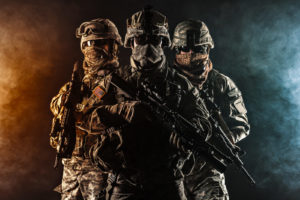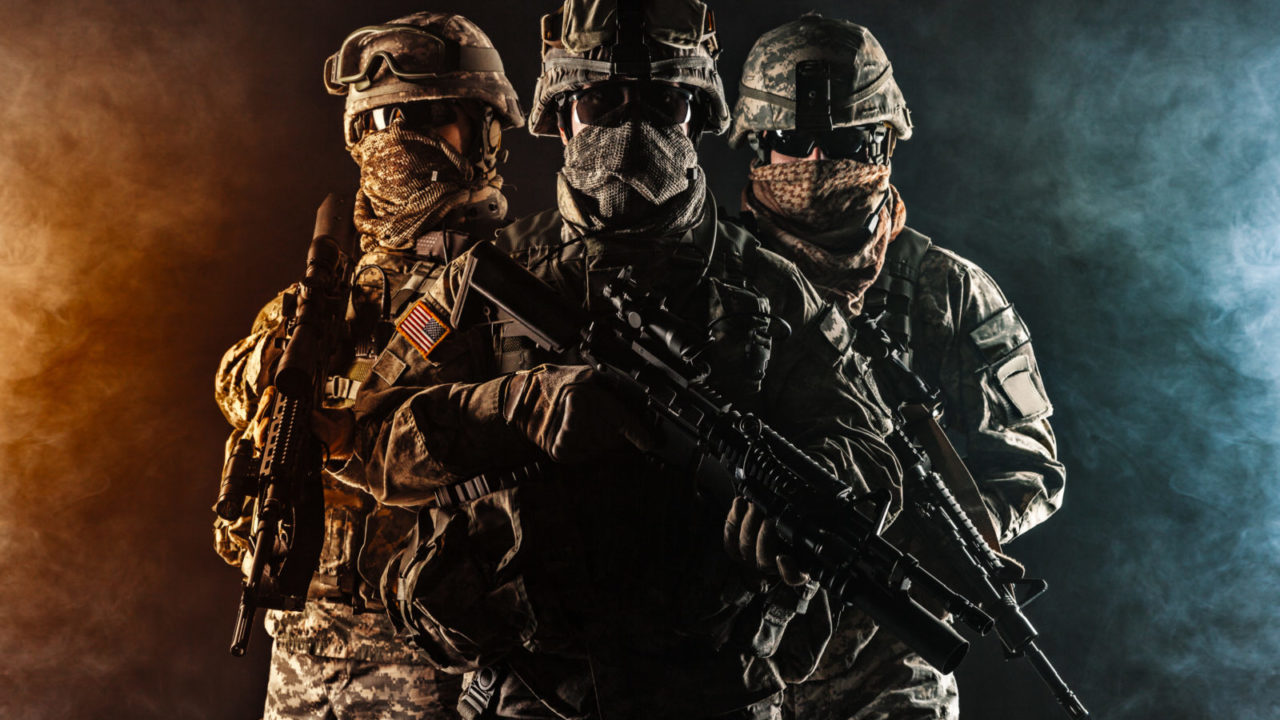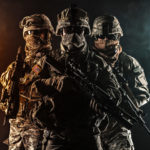This first appeared in The Havok Journal in January 2017.
___________________
Author’s Note: When it comes to terrorism, U.S. foreign policy and military operations, the true nature of Islam, and the extent of Islamic radicalization, there are no shortages of opinions. As a survivor of the 9/11 attacks and a former soldier, I certainly had my own. But when it came to discussing Islam intelligently, I had more questions than answers. Frustratingly, most interviews I’ve read or seen were apologias for Islam; of course, a few were reflexively anti-Islamic shoutfests.
So it was with an eye towards conducting a challenging, clarifying conversation that I asked Sayed and Deen, two Muslim-American veterans, to sit down and talk with me. We bonded quickly, the way soldiers do, over jokes, bullshit, and some shared bitching. I was impressed with their thoughtfulness and their passion. But our goal was understanding, not agreement. I found, in their answers, cause for both optimism and concern.
This interview is hardly the final answer on many of these subjects — we spoke for three hours and we could have spoken for twelve. But hopefully, over the course of this nine-part interview, we’ve managed to shed a little more light than heat on a range of subjects that sorely need it.
This is Part 8 of a nine-part series. You can start the series from the beginning here.
_______
CPM: You know, the Christian Dark Ages were violent and turbulent and politically destabilizing, but they were also necessary — the Dark Ages birthed the changes, the reforms and the improvements that led, ultimately, to the Renaissance. Is it fair to say that, right now, Islam is going through its “Dark Ages?”
Deen: I do. I think it’s long overdue and we just sped up the process.
CPM: How did we speed it up?
Deen: We sped it up by giving these destabilized countries weapons, money, training.
CPM: “Destabilized countries” like…?

Deen: Like Iraq. If it didn’t have all these weapons, money and training, would you still see the rise of ISIS now? Probably not to this extent.
Or look at just about every African country. On TV, you’ll see Boko Haram is using American-made APC’s. We didn’t give them to them, we gave them to Nigeria and Boko Haram ended up taking them. Afghanistan is a mess, with all the competing interests so many countries have there.
Islam is going through a lot of turbulence, but we’ve added a lot of resources that have made it more violent.
CPM: Now you could argue they would have the money and the weapons from another source anyway.
Deen: But not high-quality weapons and not as many. There’d have been much less training and cash.
Sayed: I do have to agree that Islam is going through its own Dark Ages. A lot of it stems from globalization because if this happened in the 1900s, a lot of what’s going on now wouldn’t have happened.
If you were, say, a geologist in the 1900s, you might move to Texas or Oklahoma to work. But today, you can make more lucrative money working in a compound in Saudi Arabia, and then — because you’re seen as the influential foreign advisor to a corrupt king — you are now an enemy. You may not be targeted in Saudi Arabia because the government protects you, but I can try to go to your country — I can try and hit you where it hurts you.
We’re going through our “Dark Ages” and it’s unfortunate because the violence that should be internalized ends up dragging in the rest of the world.
CPM: What’s your greatest fear about America’s future? And what’s your greatest fear about Islam’s future?
Deen: I mean, we’re geographically isolated, so — besides killing our soldiers for no apparent reason — I don’t see any big catastrophe for us.
CPM: What do you see as the biggest threat to America right now?
Deen: Ourselves.
CPM: In what way?
Deen: We’re trying to solve a problem that we can’t solve ourselves — a problem that needs to be solved within the Muslim countries, by the people. We need to reach out to those people and the first-generation Americans that we trust, the people to who we’ve given security clearances and training to. Why are you sidelining them? Put them in. I mean otherwise —
CPM: — who are you talking about specifically when you say that?
Deen: I’m talking about people like Sayed and me. Put us in.
I had a great intelligence job, where I, it was like a once-in-a-lifetime thing. The amount of money they spent in training me ended up in a very short career, but I’m pretty sure I could have done a lot more stuff. Now I’ve gone on my own, on the private side, trying to still do the same thing. So use us or we’re going to have to do it ourselves.
Sayed: I feel that the greatest threat to both America and to Islam is radicalization. Let’s take America for a second. You and I could have different viewpoints, different religions, but at the end of the day we can come together, regardless of what we think and we can work for a common goal, we can strategize.
But I feel like that could change. I feel sometimes our secular nature is on the line. I don’t care if someone doesn’t believe in God. I don’t care what they believe. I tell people I’m not trying to change your views on Muslims, I just want to make sure you have the right information. If at the end of the day, you still think we’re bad, fine, but let’s be professional, because we’re both Americans. Maybe I’ll change your opinion because of who I am as a professional even though you’ll see that I do things differently.
For Islam, the radicalization is going to destroy us. One of the very important things that Islam prides itself on is education. In fact, one of the oldest modern universities, the University of al-Qarawiyyin, was founded by a Muslim woman. She’s was a descendent of the Prophet Muhammad (PBUH), but you have these radicals who are telling young girls not to go to school and they kill women for going there.
It’s disturbing because education is the foundation of Islam. The daughters have to be educated, because they’re the mothers of the future. If we don’t fight that radicalization we’re doomed.
CPM: What could the government do?
Deen: How about you give the people that have the experience — military experience, intelligence experience, academic experience — find those people that have those three backgrounds. I’m pretty sure that out of 200, 300 million people in America, we have enough Muslims that fit that profile, have that security clearance — give them the platform to address some of these topics.
I’m not trying to take away from the Muslims that went to Yale or Harvard. Hey, they’re great, they bring something to the table, but they are not experienced in the combat stuff. They’re not experienced in the intelligence-gathering side of the house. Get those people on board with some of those academics and let’s have a debate, let’s have a working group and try to figure this out.
You have the new ISIS Czar — what are that new ISIS Czar’s qualifications to fight ISIS? I would like to know because I don’t think he really has that much in terms of combat and intelligence gathering and insight into the Muslim religion. Granted he is an academic, but he is missing the other vital pieces of the puzzle. What’s his experience with the Muslim community, both in-house and overseas?
Sayed: And that’s not just with Muslims. One of my soldiers was South Korean, smart — the full package. Army MI didn’t utilize him, they let a great resource just waste away, so he went and applied for the CIA. I only know because he became very depressed afterward and told me they wouldn’t hire him because he was a first-generation American and they couldn’t “trust” him.
Now he works in the financial industry, he’s making money hand-over-fist and he doesn’t care, but I know deep down for the sacrifices he made to enlist and I know how good an asset he could have been for the country. We have a problem here where we’re not fulfilling our potential.
_______
Chris writes regularly at The Havok Journal in addition to hosting The Weekly Havok podcast. He is a former nightclub bouncer, firefighter, corporate security trainer, and prison chaplain. He has done stand-up, been homeless for extended periods of time, had screenplays optioned, and gotten married. He was also in the military and spent 33 months in foreign combat zones, earning a Bronze Star in Afghanistan. He has written one book, edited another, and is working on a third. He can be reached at Savage Wonder.
Buy Me A Coffee
The Havok Journal seeks to serve as a voice of the Veteran and First Responder communities through a focus on current affairs and articles of interest to the public in general, and the veteran community in particular. We strive to offer timely, current, and informative content, with the occasional piece focused on entertainment. We are continually expanding and striving to improve the readers’ experience.
© 2024 The Havok Journal
The Havok Journal welcomes re-posting of our original content as long as it is done in compliance with our Terms of Use.

